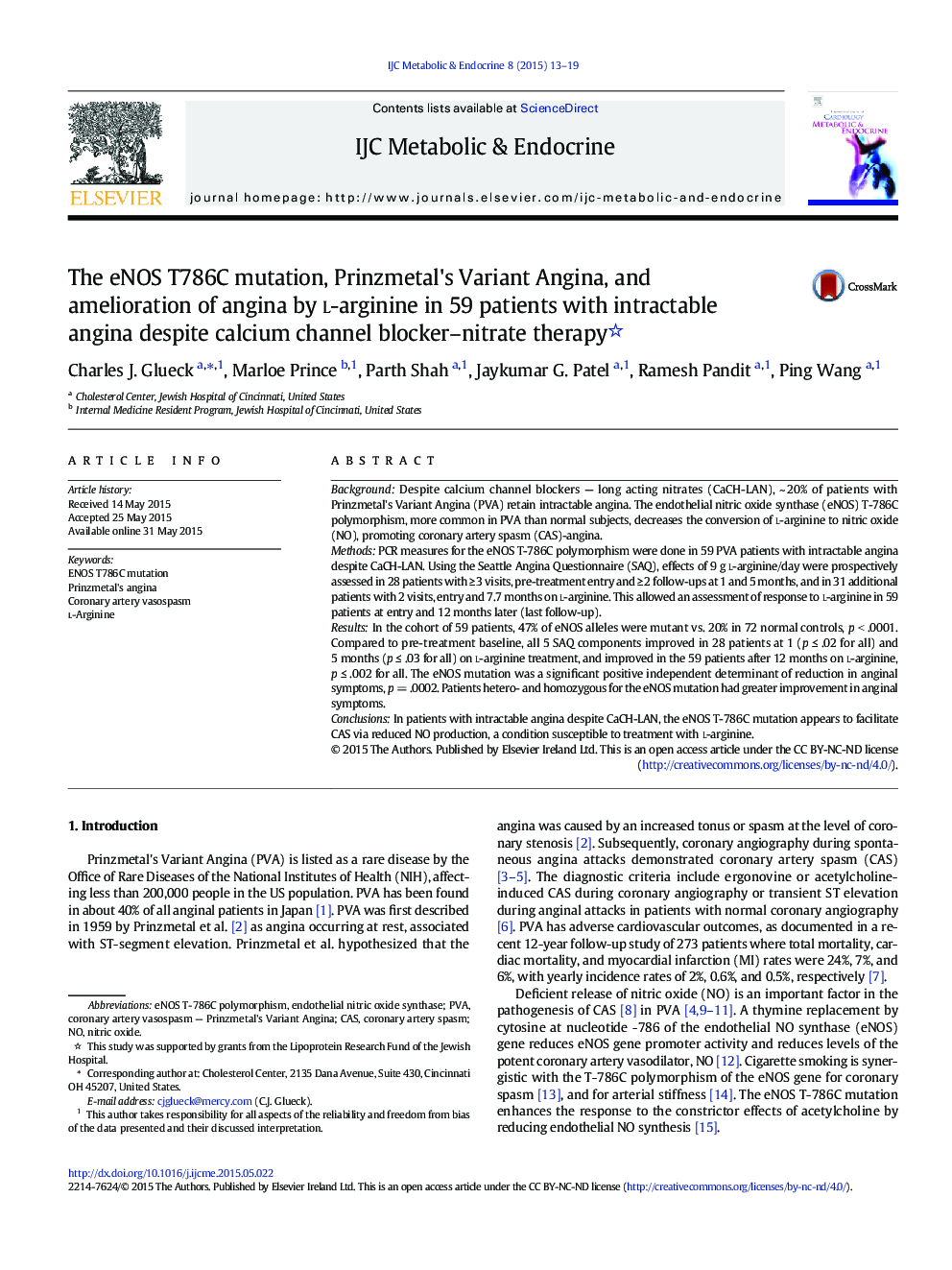| Article ID | Journal | Published Year | Pages | File Type |
|---|---|---|---|---|
| 2927225 | IJC Metabolic & Endocrine | 2015 | 7 Pages |
BackgroundDespite calcium channel blockers — long acting nitrates (CaCH-LAN), ~ 20% of patients with Prinzmetal's Variant Angina (PVA) retain intractable angina. The endothelial nitric oxide synthase (eNOS) T-786C polymorphism, more common in PVA than normal subjects, decreases the conversion of l-arginine to nitric oxide (NO), promoting coronary artery spasm (CAS)-angina.MethodsPCR measures for the eNOS T-786C polymorphism were done in 59 PVA patients with intractable angina despite CaCH-LAN. Using the Seattle Angina Questionnaire (SAQ), effects of 9 g l-arginine/day were prospectively assessed in 28 patients with ≥ 3 visits, pre-treatment entry and ≥ 2 follow-ups at 1 and 5 months, and in 31 additional patients with 2 visits, entry and 7.7 months on l-arginine. This allowed an assessment of response to l-arginine in 59 patients at entry and 12 months later (last follow-up).ResultsIn the cohort of 59 patients, 47% of eNOS alleles were mutant vs. 20% in 72 normal controls, p < .0001. Compared to pre-treatment baseline, all 5 SAQ components improved in 28 patients at 1 (p ≤ .02 for all) and 5 months (p ≤ .03 for all) on l-arginine treatment, and improved in the 59 patients after 12 months on l-arginine, p ≤ .002 for all. The eNOS mutation was a significant positive independent determinant of reduction in anginal symptoms, p = .0002. Patients hetero- and homozygous for the eNOS mutation had greater improvement in anginal symptoms.ConclusionsIn patients with intractable angina despite CaCH-LAN, the eNOS T-786C mutation appears to facilitate CAS via reduced NO production, a condition susceptible to treatment with l-arginine.
